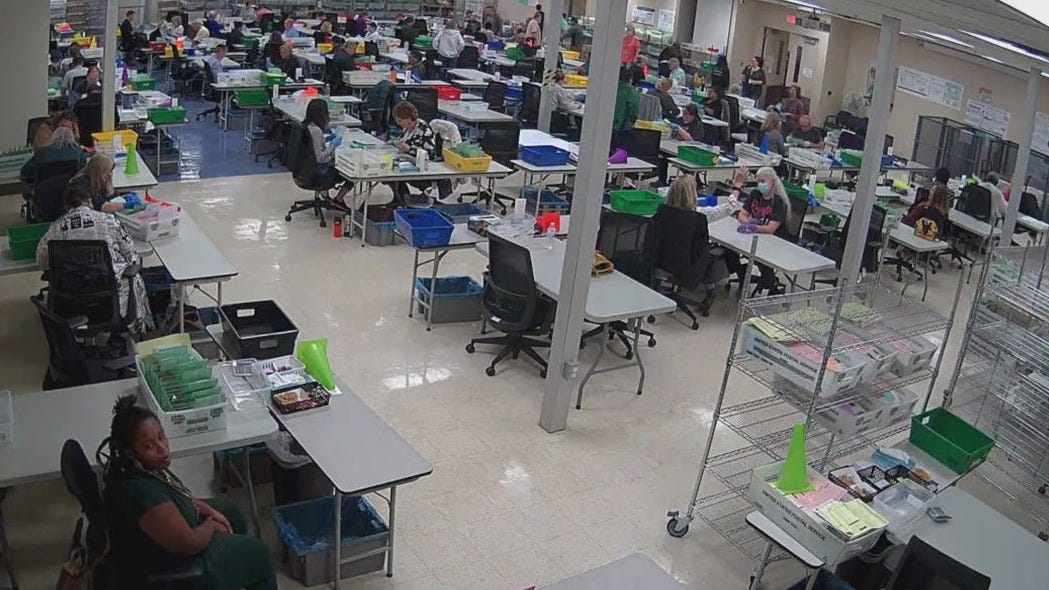What is ballot curing? Some voters can still ensure their 2024 election votes are counted

Ballots can't get sick, but after an election many voters need to "cure" their ballots to make sure they get counted. If you voted by absentee or provisional ballot, election officials will inspect it to make sure it has all the necessary information − and they often find it doesn't.
For example, a state election worker might find the signature on an absentee ballot doesn't match the one the election office has on file. A voter who shows up the polls without the proper photo ID may fill out a provisional ballot that won't be counted until you present the right ID to the elections office.
In the closely watched swing state of Nevada, on the Monday before the election, there were nearly 14,000 ballots that required signature cures, according to the office of Secretary of State Cisco Aguilar. In the county that surrounds Albuquerque, New Mexico, hundreds of ballots were rejected, according to a local news station.
“It’s critically important that voters be aware of the potential need to cure their ballots, to make sure their voices are heard and votes are counted,” Aguilar said in a news release. “This is especially important for young voters who may not have a practiced signature or older voters whose signatures have changed over time.”
Ahtar Hassebullah, executive director for the ACLU of Nevada, told Paste BN Nov. 5 that he expected to see the number of ballots needed to fix go down. “Everybody’s working to get the number reduced," he said. "It’s just a part of the process here."
By Monday, there were total of 9,956 ballots that still need to be cured statewide in Nevada, according to the secretary of state’s office.
Nationwide, about 550,000 absentee ballots were rejected during the 2022 elections for Congress, according to Ballotpedia News. When states have policies that allow people to cure their absentee ballots, fewer ballots are rejected, according to the Massachusetts Institute of Technology.
The good news is most states often offer the opportunity to fix, or cure, a ballot. This usually means returning to the elections office within a set number of days to provide necessary information.
Elections offices often contact voters to notify them of the need to cure, but they may not, meaning that voters might need to follow up on their own to make sure their ballots get counted. Here is a look at situations that voters might need to go in and cure their ballot.
Do I need to cure my ballot?
If you vote in a state that requires voter ID and were unable to show one at the polls, you might have been given the option to vote by provisional ballot, a type of ballot that is set aside from the rest of the votes while election officials adjudicate whether it should be counted. These voters will likely need to return with the appropriate ID to cure their ballots.
If your state performs signature verification — matching the signature on a ballot envelope to another signature the elections office has on file — your ballot might be rejected. If that happens, you may need to return to the elections office to cure your absentee ballot in order to have your vote counted.
How long do I have to cure my ballot?
State laws vary on how much time voters have to cure their ballots. Here are the deadlines in some of the states where voters still have time to cure their ballots from the Nov. 5 presidential election.
- In Nevada, absentee ballot signatures must be cured by 5 p.m. on Tuesday, Nov. 12, according to the Secretary of State's office.
- In Texas, voters who have acceptable photo ID but did not show it at the polls have until six days after the election to present an acceptable photo ID to their county voter registrar, according to the Secretary of State's office.
- In Colorado, voters have until the very end of the night on the eighth day after the election to cure their ballots, according to the Secretary of State's office.
Is it too late to cure my ballot?
In many states, the ballot cure deadlines have passed. Among the states:
Contributing: Terry Collins.